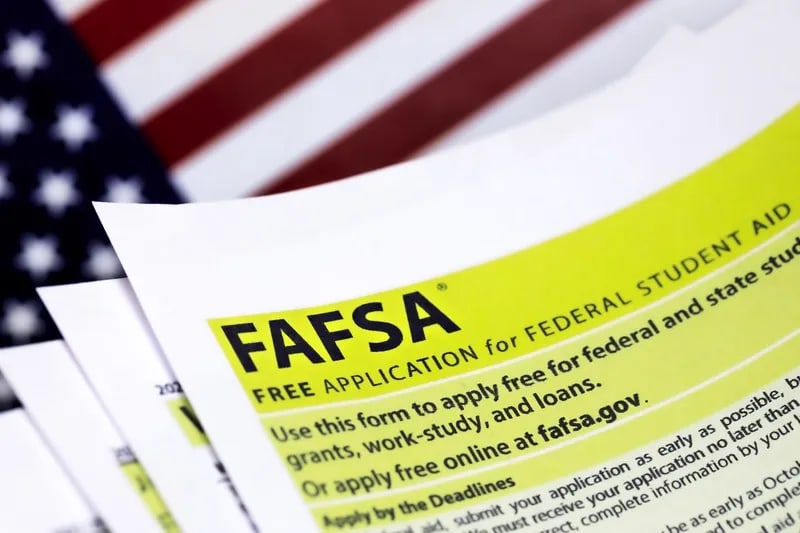Starting in the 2024—25 academic year, the Expected Family Contribution is being eliminated in favor of a new Student Aid Index (SAI).
The SAI, unlike the EFC, may be a negative number, with the lowest possible amount of -1,500. This allowance for negative SAI numbers help identify neediest students with the greatest need.1
Similar to the EFC, the lower the SAI, the more aid you’ll be eligible for.
For example, having a $20,000 cost of attendance and an SAI of negative $1,500, you could be eligible for $21,500 in need-based aid — an increase of $1,500.
Everything about FAFSA boils down to three letters, EFC, which stands for Expected Family Contribution. It is a measure of how much money you are expected to contribute to your college education for one academic year.
Your EFC is calculated from the information provided on your FAFSA. The same information is also sent to the schools you listed on the FAFSA.
EFC is a very important number that will determine your need and eligibility for aid.
Using that information, the schools will determine your financial need and package your financial aid award accordingly — usually in a combination of grants, loans and work-study.
Your financial need is the difference between your college costs (Cost of Attendance, or COA) and your calculated EFC. It’s really just a simple math!
For example, if your EFC is $8,000, and the college costs $15,000 to attend, you may be eligible for $7,000 worth of aid.
On the other hand, if college A costs $6,000, you may not be offered financial aid (from college A), since FAFSA indicates you can pay that much out of your own pocket.
The federal government determines your Expected Family Contribution using a formula that takes into consideration family size, number of family members in college, family income, and assets.
The new formula, which goes into effect for the 2024—25 school year, will no longer consider the number of siblings attending college when measuring a family's ability to pay, effectively eliminating a “sibling discount.”
This adjustment could make it less easier for families to afford college if they have more than one child pursuing a degree. For some families, the elimination of "sibling discount" will be the biggest change in aid eligibility.
What is a good EFC number? #
The lower your EFC, the more likely it is that you will be eligible for need-based aid, such as grants and subsidized federal loans.
Any student with an EFC number at 0 will receive the maximum amount of student aid, while a number over 6,656 will result in no aid at all.
The higher your EFC, the less aid you’ll get, and the more you’ll pay out-of-pocket.
And the more likely it is that you will need to find additional sources of aid that are not based on need, such as merit scholarships, savings, unsubsidized federal loans, or private education loans.
The best case senario is to get a Zero EFC or an SAI below zero, as low as -$1,500, for maximum aid eligibility.
But to qualify for the Automatic Zero EFC, under the new legislation, your combined family’s Adjusted Gross Income must be $27,000 or less per year.
What does EFC 00000 mean? #
An EFC of $0 simply means that you have no ability to pay for college but that doesn’t mean you pay nothing at all as most colleges do not meet 100% of your financial need, but instead leave a gap.
It’s called gapping, because there is, literally, a gap between how much a college costs and how much aid is offered.
So once you know your EPC, it becomes a lot easier to get a realistic idea of the amount of out-of-pocket costs you’ll be expected to contribute to fill the gap between the cost of a school and financial aid you’re entitled to receive.
If you want to have a quick estimate of your EFC, use the Federal Student Aid Estimator for a better estimate of the EFC and eligibility for federal student aid.
Keep in mind that your EFC is not the amount of money your family will have to pay for college nor is it the amount of federal student aid you will receive. It is an important number used by your school to calculate the amount of aid you are eligible to receive.
References
